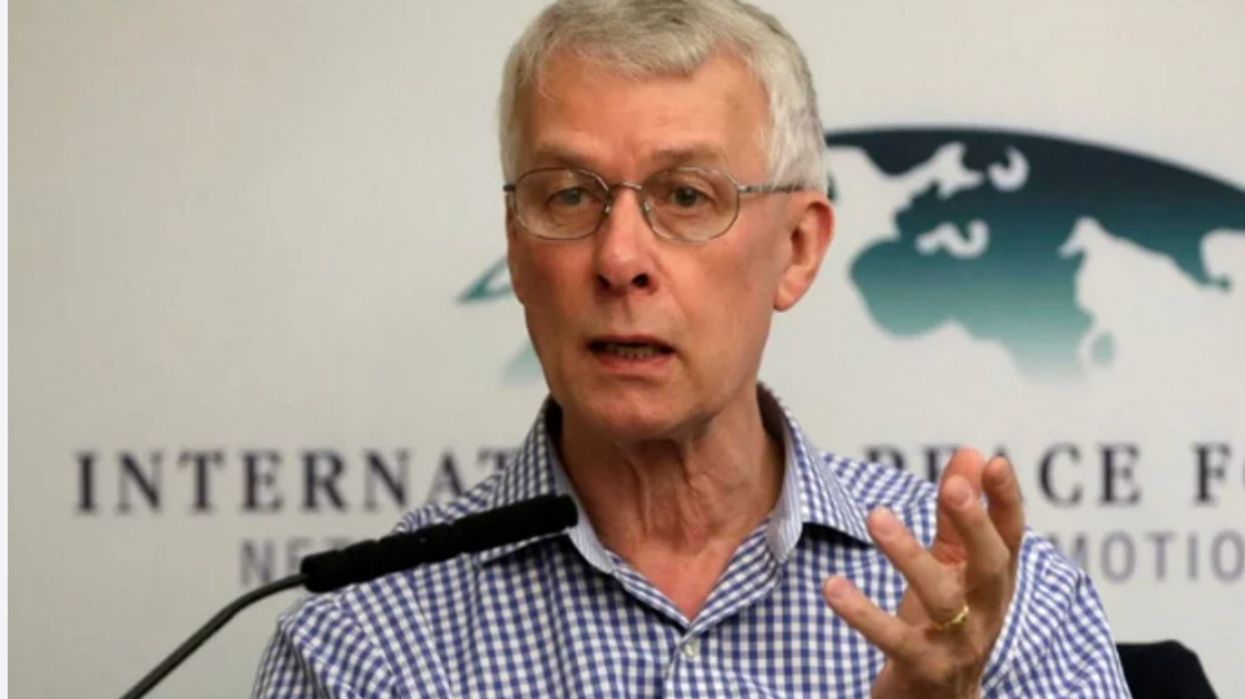Stockholm (AFP) – Jean Tirole won the Nobel Economics Prize on Monday for research on reining in corporate giants, a second French award this season hailed as a slap in the face for “France bashers”.
“One of the most influential economists of our time,” the jury called Tirole, whose fellow countryman Patrick Modiano took the prize for literature last week.
“Most of all he has clarified how to understand and regulate industries with a few powerful firms,” it said of the 61-year-old professor at Toulouse 1 Capitole University.
Taming huge corporations, and ensuring they don’t reap huge profits at the expense of ordinary consumers, has emerged as a growing concern in recent years.
The global financial crisis — triggered by a small number of giant players in the banking sector — has further pushed the complex issue up the agenda for global policymakers.
“Banking is a very hard thing to regulate, and we economists have to do more work on this,” Tirole told the Nobel Committee after learning he had won the prize, worth eight million Swedish kronor ($1.1 million, 878,000 euros).
News of his win triggered delight in Paris — as well as a note of vindication from the French prime minister, irked by a string of articles decrying the morose state of the nation.
“After Patrick Modiano, yet another Frenchman has come to the fore: Congratulations to Jean Tirole!” Manuel Valls tweeted after the announcement. “Talk about thumbing your nose at ‘French-bashing’.”
Modiano’s win last week was already hailed as a boost for a country in the doldrums with a stagnating economy and deeply unpopular government.
President Francois Hollande said the prize puts the spotlight on “the quality of the research carried out in our nation.”
Tirole’s work, the Nobel jury said, has provided a framework for designing policies for a range of industries from banking to telecommunications.
His citation comes amid growing controversy over the market power of such companies as Amazon and Google.
“Drawing on these new insights, governments can better encourage powerful firms to become more productive and, at the same time, prevent them from harming competitors and customers,” the jury said.
The concentration of corporate power has been a key concern for policymakers since the 1980s, when advanced countries moved progressively to allowing markets a freer role.
The trend has been strengthened across industries by technological advances and globalization, which produced unprecedented wealth but also exacerbated inequality.
A lot of Tirole’s research has focused on motivation and salary, with regard to large companies and the rise in pay among the top tiers of leadership — like Wall Street chief executives.
But his Nobel Prize came for his work on oligopoly and game theory — or the study of how strategic interactions affect an outcome.
An oligopoly is a state of limited competition, a popular example being the cellular companies Verizon, AT&T, Sprint and T-Mobile, which together control around 90 percent of the market. A monopoly, on the other hand, is the dominance of one seller in the market.
Tirole’s research has also shown how some companies — for example producers of widely-used but patented software — are able to dominate not just their own industry, but also related ones further down the production chain.
One of his chief contributions is the notion that market dominance works differently in different industries, according to the Nobel jury.
His research suggests, for example, that it can sometimes make sense to allow firms to undercut each other by setting prices below production costs — something traditionally disciplined under competition, or anti-trust, law.
“The best regulation or competition policy should therefore be carefully adapted to every industry’s specific conditions.”
The prize will be awarded at a ceremony in Stockholm on December 10, the anniversary of the death in 1896 of the prizes’ creator, Swedish scientist and philanthropist Alfred Nobel.
Appropriately for an economist who has dedicated much of his career to the study of monopolies, Tirole’s award reduces an American near-monopoly over the Nobel economics prize in recent years.
Over the past decade, 18 out 20 economics prize laureates have been from the United States, including one Israeli-American.
Last year, U.S. scholars Eugene Fama, Lars Peter Hansen and Robert Shiller won for their work on spotting trends in the asset markets.
The economics prize winds up this year’s Nobel season, marked by the award Friday of the peace prize to 17-year-old Pakistani Malala Yousafzai and India’s Kailash Satyarthi.
AFP Photo/Eric Cabanis












